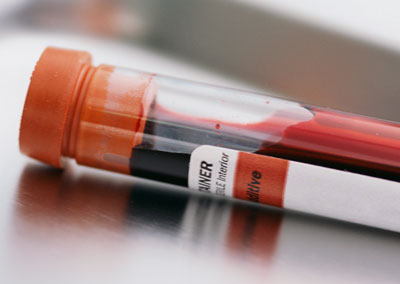
NSW Health defends HIV database changes

NSW Health has responded to concerns about proposed changes to the Public Health Act which would have the names and addresses of people living with HIV (PLHIV) given to the NSW Health Secretary.
Currently more than 50 conditions are deemed ‘notifiable’ by NSW Health and the names of people with those diseases are given by medical practitioners and pathology laboratories to the Secretary to be added to to a database.
HIV received an exemption from being classified as notifiable when the disease was first discovered, but a mandatory review of the Public Health Act contains recommendations to remove HIV’s de-identified status.
Star Observer reported on Wednesday some in the HIV sector were concerned about the changes.
“My concern is that these changes will end up creating a bigger barrier to HIV testing and prevent HIV+ people from living a full, open life,” The Institute of Many (TIM) co-founder Nic Holas said.
But NSW Health said there was no proof removing the de-identification of HIV was a barrier to people getting tested.
“NSW Health is not aware of any evidence showing that named notification leads to decreases in HIV testing,” the statement said.
“In fact overseas studies have shown that the introduction of named notification has not reduced HIV testing.”
The department argues changing HIV to an identifiable condition will bring better retention of patients in care, improve patient follow up and linkage to care and services, reduce “exceptionalism” – where HIV is considered differently to other conditions, which may perpetuate stigma and discrimination; and improve accuracy of epidemiological data, including better identification of risk factors which may assist in improving prevention strategies and patient management, and more accurate estimates of HIV mortality.
“NSW Health is concerned that the HIV de-identification requirement restricts NSW Health’s ability to understand the epidemiology of HIV in NSW, and to assist doctors in optimising patient care,” the statement said.
“Today there is a highly effective combination anti-retroviral therapy (ART) available and new evidence clearly demonstrates the importance of starting ART as early as possible after infection.
“Named notification would not change the current situation whereby a person can be tested anonymously.”
Holas agreed reducing HIV ‘exceptionalism’ was a commendable target but it could not be achieved without removing criminalisation.
“Once that’s over and done with, I’m happy to discuss being added to a named database so that the jobs of epidemiologists and public health staff can be simplified,” he said.
“No-one is questioning NSW Ministry of Health’s intentions with this proposed database. Under Minister Skinner, NSW has retained its status as a world leader on HIV, and her commitment to our community is commendable if not legendary.
“This identified database is an overreach in the mission to end HIV by 2020. It prioritises epidemiologist data gathering at the expense of our privacy and freedom.”
The department reiterated the named notifications would just be given to the Health Secretary and “the NSW Health Records and Information Privacy Act places strict limits on the use and disclosure of health information and there are additional restrictions on the use and disclosure of notifiable diseases data in the Public Health Act”.
Submissions for the review close today and people can send their submissions to:
Health Protection NSW, NSW Ministry of Health
Locked Bag No. 961
North Sydney NSW 2059
Email: [email protected]
The paper can be found at http://www.health.nsw.gov.au/legislation/Pages/acts-under- review.aspx.









